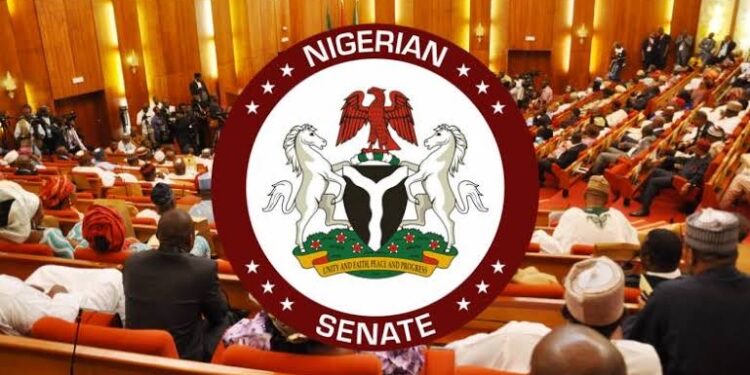Daud Olatunji
The Senate on Wednesday approved a bill prescribing a minimum of five years and up to 14 years imprisonment for lecturers and other academic staff found guilty of sexually harassing students in tertiary institutions across the country.
The legislation, titled Sexual Harassment of Students (Prevention and Prohibition) Bill, 2025, seeks to curb the rising cases of sex-for-grades and other forms of sexual exploitation on Nigerian campuses.
Presenting the bill for concurrence, the Deputy Senate Leader, Senator Oyelola Ashiru, described it as a landmark move aimed at sanitising the country’s learning environment.
Ashiru stated, “This bill is designed to protect students from all forms of sexual misconduct and abuse within academic environments. It provides clear legal frameworks for the enforcement and punishment of offenders.”
He added that the law would “uphold the sanctity of the student-educator relationship built on authority, trust and respect, not exploitation and abuse.”
Under the new legal framework, educators convicted of serious sexual harassment offences face not less than five years and up to 14 years jail term, with no option of fine. Lesser offences attract between two and five years imprisonment, also without the option of fine.
The bill also empowers students who allege harassment to pursue civil claims for breach of fiduciary duty, with the standard of proof aligned with civil litigation requirements — a shift advocates say will make it easier for survivors to seek justice.
The Act covers a broad range of sexual misconduct, including demands for sexual favours, unsolicited advances, inappropriate touching, sexual comments, gestures and inducing others to engage in harassment.
The development follows nationwide concerns over rampant abuse of female students by lecturers and administrators, with rights groups and students’ unions repeatedly demanding strict sanctions for offenders.
During deliberation, Senator Adams Oshiomhole pushed for the law to extend beyond academic institutions, arguing that sexual harassment affects Nigerians in workplaces and other settings.
“There is no need to restrict sexual harassment issues to students alone. We should craft this law in a way that gives it universal application,” he argued.
However, Deputy Senate President, Senator Jibrin Barau, ruled out amendments at this stage, noting that the Senate was only concurring with a bill already passed by the House of Representatives.
Barau also pointed out that workplace harassment is covered under other existing statutes.
The bill’s passage is seen as a victory for student-rights campaigners who have long accused universities of shielding sexual predators and intimidating complainants.
Analysts say the law, once signed by the President, will strengthen protection for vulnerable students and help rebuild public confidence in Nigeria’s tertiary education system.
The legislation has been passed for third reading and will now be transmitted to the President for assent.
Do you want to share a story with us? Do you want to advertise with us? Do you need publicity for a product, service, or event? Contact us on WhatsApp +2348183319097 Email: platformtimes@gmail.com
We are committed to impactful investigative journalism for human interest and social justice. Your donation will help us tell more stories. Kindly donate any amount HERE




